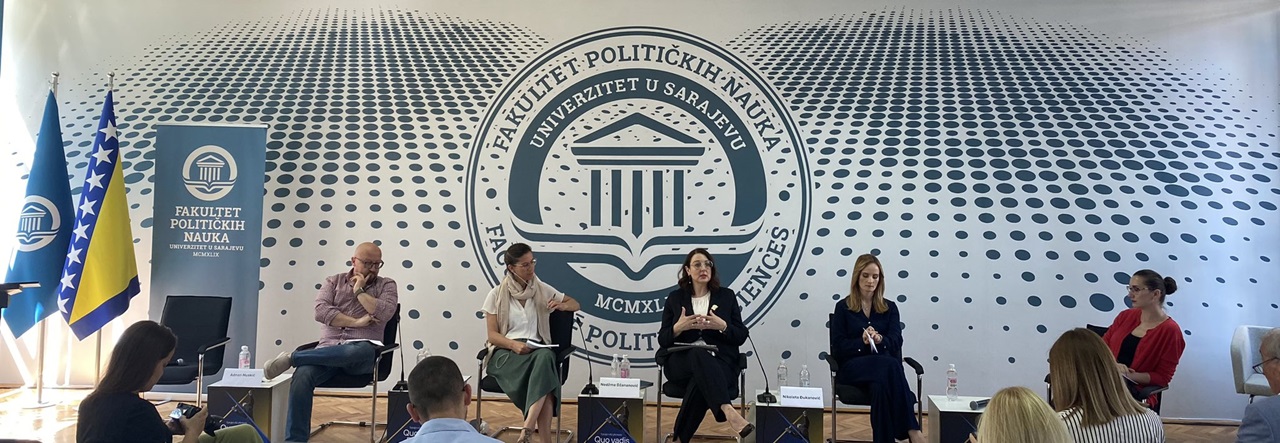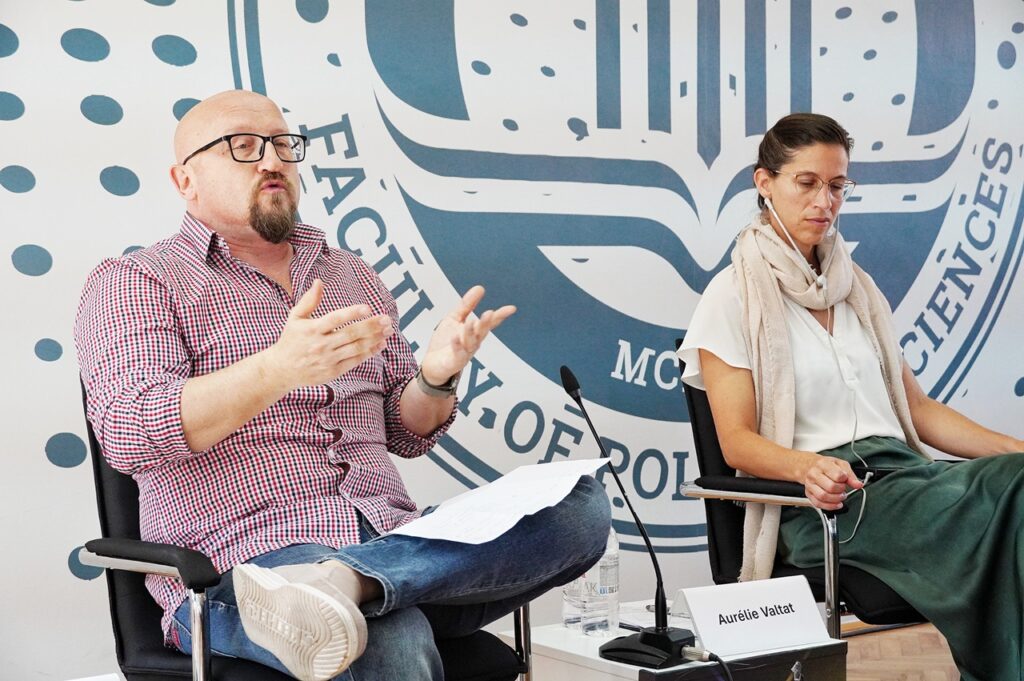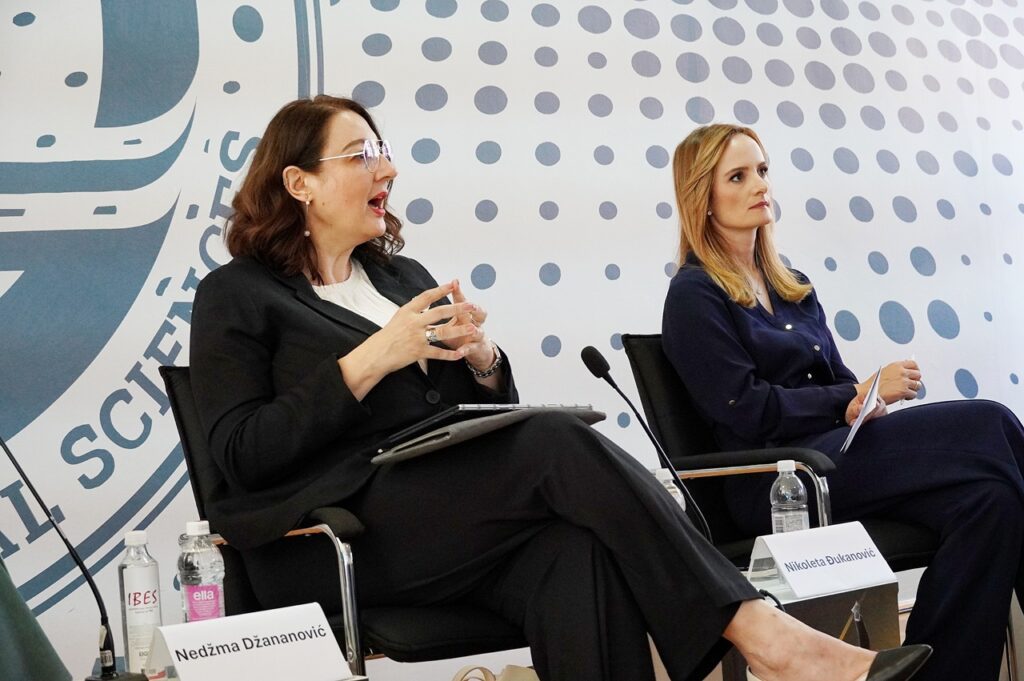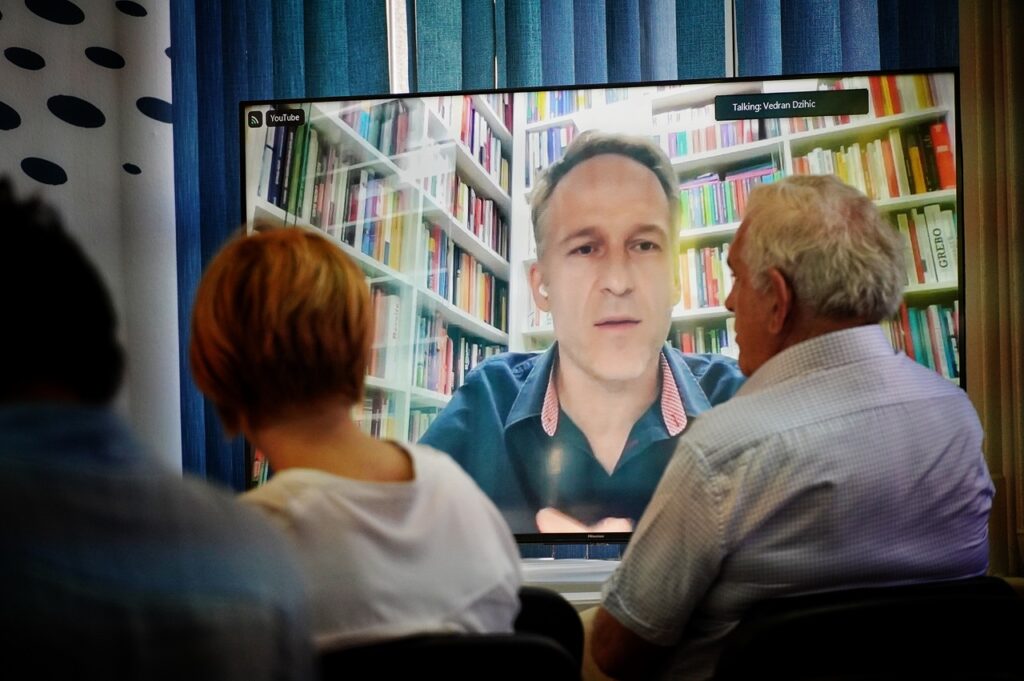On the third day of the Sarajevo Plenum a panel dedicated to the European Union and various integration models was held, featuring presentations by Aurelie Valtat, Head of the Department for European Integration, Policy, and Information at the EU Delegation in Bosnia and Herzegovina; Dr. Nedžma Džananović, Professor at the Faculty of Political Sciences of the University of Sarajevo; Dr. Nikoleta Đukanović, Professor at the University of Donja Gorica in Montenegro; Dr. Adnan Huskić, Professor at the Sarajevo School of Science and Technology; Nataša Vučković, Executive Director of the Center for Democracy Foundation from Serbia; and Dr. Vedran Džihić, Lecturer at the University of Vienna and member of BIEPAG, moderated by Prof. Dr. Ehlimana Spahić from the Faculty of Political Sciences, University of Sarajevo.
“The negotiation framework can be viewed from several different angles. Montenegro still has the potential to complete the negotiation process, but it is also experiencing a serious democratic regression“, noted Dr. Adnan Huskić, adding that this is also the case with other countries in the region. “The processes of democratic regression and progress in European integration must not be parallel processes”, emphasized Huskić. He stated that each round of enlargement has brought new types of problems, which is why, among other reasons, Western Balkan countries are expected to resolve all bilateral disputes, which are numerous, before being joining the EU. “Bosnia and Herzegovina is the first highly decentralized state attempting to join the EU, which imposes a new type of obligation. And, there is no consensus in the EU on enlargement. It is clear that the enlargement process has become a political tool for the EU, as evidenced by the developments with Moldova and Ukraine,” concluded Huskić.
Nedžma Džananović provided an overview of the EU’s decades-long unfulfilled promises to the Western Balkans, with a focus on Bosnia and Herzegovina. “Our current European integration process is a cheap spectacle“, she remarked. “February 2022 was a moment when the unthinkable happened to the EU – war returned to European soil. Europe’s response to this was the only possible one, and this geopolitical shift significantly influenced the EU’s enlargement policy“, she recalled, noting that this led to the realization that “the enlargement policy does not exist as a real policy, not even as a goal, but as an alibi policy, a perspective offered without any real prospect of being realized in the near future.” Džananović emphasized the importance of the enlargement policy towards the Western Balkans, as well as towards Ukraine, Moldova, and Georgia, as the only instrument the EU has at its disposal. She warned that it is not being used adequately in the democratization of these countries, highlighting the lowering of criteria, the shift away from Euro-realists, and the rapprochement with those who do not genuinely believe in its values.
“The EU is an unfinished political community, and this is evident through its enlargement policy“, said Nikoleta Đukanović, adding that this policy is primarily driven by the fear of the influence of other major powers in the region and that whenever the EU has been less present in the region, problems have arisen. “The EU’s policy of conditionality no longer has an effect in the region. It has been shown that the longer the EU integration process lasts, the more the level of democracy in the state and society declines, as confirmed by various democracy indices. The reason for this lies in the fact that the integration process does not suit politicians because it reduces their monopoly on power, while the EU shows indifference or accepts poor solutions“, said Đukanović, emphasizing that the existing reforms of the enlargement policy have not yielded results. Reflecting on Montenegro and its European integration, she concluded that if Montenegro, as it is today, were to be admitted to the EU in the next few years, it could cause numerous problems – both in the EU and in Montenegro.
“Today, everyone agrees that the enlargement process seems exhausted, not because it is a technical process, but because political issues have led to the discrediting of the process”, stated Nataša Vučković. She illustrated this with the example of North Macedonia and highlighted the constant changes in the EU’s approaches, mechanisms, and priorities, as well as poor communication, which drains resources and energy without producing results. She reminded that in Serbia’s integration process, resolving the issue of Kosovo has become key moment, marginalizing EU values. She emphasized the importance of partnership work as opposed to the policy of conditionality, particularly highlighting the pilot initiative of the European Economic and Social Committee to include members from the Western Balkans in its work, suggesting that this model should be applied at other levels of the EU as well. Vučković concluded that, despite the obstacles posed by political elites in the region, motivation can be found in the results this process can bring, making it important to see a tangible end to the process.
“Our experience tells us that what we are currently experiencing in the region, unfortunately, resembles the movie ‘Groundhog Day,’ where the main character wakes up in the same reality every day. However, when it comes to EU integrations, we find ourselves in an even worse situation because we wake up in a reality that is worse than the one we fell asleep in. When we listen to assessments of our EU integration process, it seems like we are living in parallel universes due to the polyphony of opinions, and in some countries, we even have democratic regression “, stated Vedran Džihić. He assessed that it is easier and more realistic to imagine a situation where the process of European integration in the Western Balkans will never end, rather than one where it concludes in the near future. “In our region, a new concept has emerged where a large part of our political elites tries to offer a concept for the present and future based on a past that is either invented or does not correspond to any vision of a functional future, which is completely contrary to the concept of European integration”, said Džihić.
“In the process of European integration, it is desirable for states to cooperate both beyond and prior to EU membership. This path is complementary to the process of European integration, rather than necessarily opposed to it”, stated Aurelie Valtat. “De-democratization is not specific to the Western Balkans; it is a phenomenon that we also see in the EU, and the crucial aspect is how states deal with it”, she emphasized. Valtat said that her impression is that, although it may seem that the Western Balkans are no longer as important to the EU, the situation is actually reversed. “The EU wants the Western Balkans more than the Western Balkans want the European Union”, she asserted. Reflecting on criticisms that the EU, through its approach to Bosnia and Herzegovina and Montenegro, deviated from its own values, standards, and principles, she emphasized that the EU remains committed to that framework because there is no compromise with the established acquis communitaire. However, some things are postponed for later, and this has not been well communicated to the wider public.
The Sarajevo Plenum Quo Vadis, Balkan? is organized by the Regional Academy for Democratic Development (ADD) from Serbia, the Centre for Civic Education (CCE) from Montenegro, and the Faculty of Political Sciences of the University of Sarajevo (FPN US), with the support of the European Fund for the Balkans (EFB).




